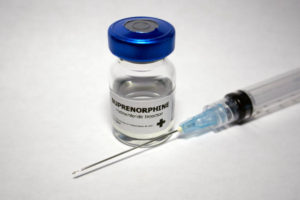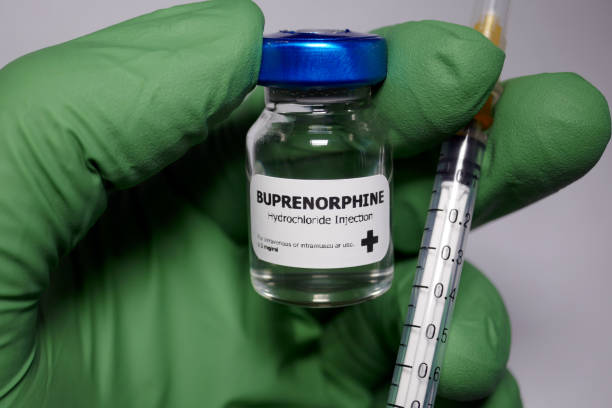If you are facing a drug test, there is a chance that you have heard of BUP. What is BUP on a drug test? What does it stand for? What will it do to your drug test results? In this blog post, we will answer all of those questions and more! We will provide an overview of what BUP is, what it does, and how it can impact your drug test results. Keep reading to learn more!
Buprenorphine Medication
It is a medication that is used to treat opioid addiction. It can be used as part of a detoxification program or as maintenance therapy. When used for detoxification, it helps to reduce the symptoms of withdrawal from opioids. When used for maintenance therapy, it also helps to prevent relapse and reduces the risk of overdose.
BUP is a partial agonist at the mu-opioid receptor, which means that it has both agonist and antagonist properties. This allows producing both desired and undesired effects. At low doses, it binds to the mu-opioid receptor and produces agonist effects, such as pain relief and decreased anxiety. At higher doses, BUP begins to produce antagonist effects, such as blocking the effects of other opioids.
Buprenorphine is a Schedule III controlled substance in the United States, which means that it has a lower potential for abuse than Schedule I or II substances. It is available in both pill and film form. This can be detected in urine for up to 3 days after last use. In hair, it can be detected for up to 90 days. BUP will not cause a false positive on a drug test for opioids. However, if you are taking a prescription medication that contains BUP, you should tell the laboratory conducting your drug test about your use of this medication.
BUP On A Drug Test
Buprenorphine, also known as Subutex, is a medication used to treat opioid addiction. It is a partial agonist of the mu-opioid receptor, which means that it produces some of the same effects as opioids, but with less intensity. Buprenorphine is used as part of a treatment plan that includes counseling and behavioral therapy.
When taken as prescribed, buprenorphine is safe and effective. However, because it is a potent medication, it can be abused. People who abuse buprenorphine may take it in higher doses than prescribed, or they may take it more often than prescribed. They may also crush and snort the tablets or inject them into their veins.
Buprenorphine abuse can lead to dependence and addiction. If you suddenly stop taking buprenorphine, you may experience symptoms, such as anxiety, sweating, nausea, and diarrhea.
If you are being screened for drug use, it is important to know that buprenorphine will show up on most drug tests. However, there is one specific test, called the Suboxone drug test, which can specifically detect buprenorphine in your system. This test is not often used, but it may be ordered if your healthcare provider suspects that you are abusing buprenorphine.
If you take buprenorphine as prescribed and disclose your use of the medication to the person conducting the drug test, you will not likely have any problems. However, if you are abusing buprenorphine and do not disclose your use of the medication, you may be subject to disciplinary action, such as being fired from your job or kicked out of your child’s school.

How Will You Know If You’re Addicted To Buprenorphine?
If you are taking buprenorphine as prescribed and are not having any problems, then you are probably not addicted. However, if you are abusing buprenorphine, you may be addicted. Some signs of addiction include:
- Taking buprenorphine in higher doses than prescribed
- Taking buprenorphine more often than prescribed
- Crushing and snorting the tablets or injecting them into your veins
- Continuing to use buprenorphine even though it is causing problems in your life
- Feeling unable to stop using buprenorphine
If you think you may be addicted to buprenorphine, get help right away. There are many resources available to help you overcome addiction. Talk to your healthcare provider, call a helpline, or see a therapist. Do not try to quit on your own. Withdrawal from buprenorphine can be dangerous and even life-threatening.
What Are The Signs Of Buprenorphine Withdrawal?
If you suddenly stop taking buprenorphine, you may experience withdrawal symptoms, such as anxiety, sweating, nausea, and diarrhea. These symptoms are usually mild and go away on their own within a few days. However, in some cases, withdrawal can be more severe.
If you are addicted to buprenorphine and try to quit on your own, you may experience severe withdrawal symptoms, such as:
- Seizures
- Hallucinations
- Delirium
- Psychosis
Withdrawal from buprenorphine can be dangerous and even life-threatening. If you are addicted to buprenorphine, do not try to quit on your own. Get help from a doctor or nurse from the addiction treatment center. Withdrawal should be done under medical supervision to ensure your safety.
What Is The Treatment For Buprenorphine Addiction?
There are many resources available to help you overcome addiction. Talk to your healthcare provider, call a helpline, or see a therapist. Do not try to quit on your own. Withdrawal from buprenorphine can be dangerous and even life-threatening.
Some treatment options for buprenorphine addiction include:
- Inpatient treatment: This type of treatment allows you to stay in a hospital or rehab center where you will receive 24-hour supervision and care.
- Outpatient treatment: This type of treatment allows you to live at home while attending counseling and therapy sessions several times per week.
- 12-step programs: These programs, such as Alcoholics Anonymous or Narcotics Anonymous, use a proven method to help people overcome addiction.
- Medication-assisted treatment: This type of treatment uses medication, such as buprenorphine, to help people detox from drugs and stay drug-free.
Are There Long-Term Consequences Or Risks For People Who Abuse Buprenorphine?
There are no known long-term consequences of buprenorphine abuse. However, abuse of any drug can lead to addiction and other problems. If you are abusing buprenorphine, get help right away.
There are some risks associated with taking buprenorphine, such as:
- Drowsiness
- Nausea and vomiting
- Constipation
- Headache
- Dizziness
- Rash
- Itching
- Dry mouth
- Sweating
Conclusion
Overall, buprenorphine is a drug that can be abused and lead to addiction. If you think you may be addicted to buprenorphine, it is important to get help right away. Withdrawal from buprenorphine can be dangerous and even life-threatening. There are many resources available to help you overcome addiction. Talk to your healthcare provider, call a helpline, or see a therapist. Do not try to quit on your own.
